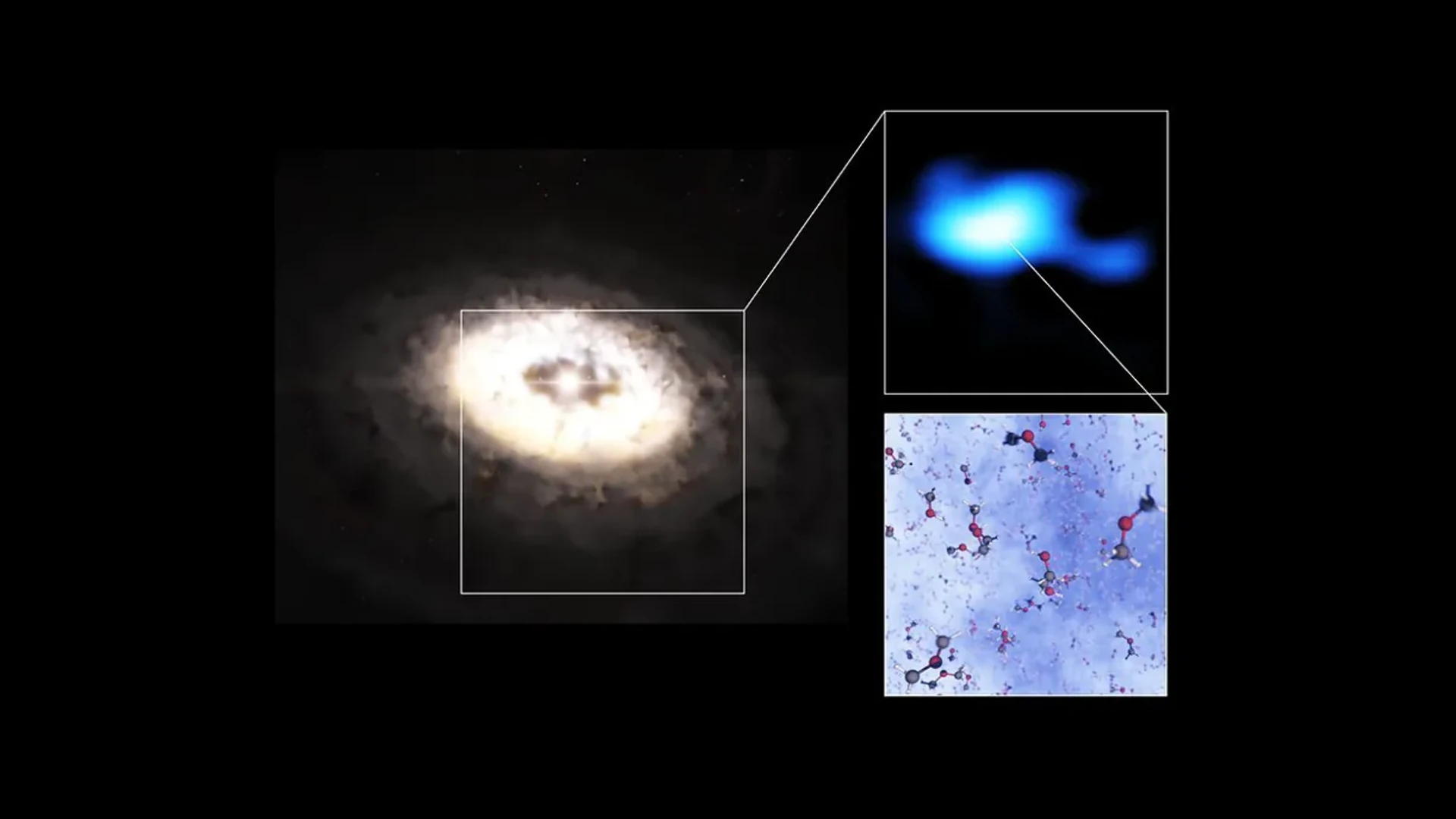Researchers have discovered dimethyl ether in a planet-forming disc for the first time using Chile’s Atacama Large Millimeter/submillimeter Array (ALMA).
While utilizing the Atacama Large Millimeter/submillimeter Array (ALMA) in Chile, researchers at Leiden Observatory in the Netherlands have in a first time have detected dimethyl ether in a planet-forming disc. It is the largest molecule found in such a disc to date, containing nine atoms. As well as being a precursor for larger organic molecules, it can also lead to the emergence of life. Read on for more information.
1/ Using @ALMAObs astronomers have detected dimethyl ether in a planet-forming disc around the star IRS 48, the largest molecule ever discovered in such an environment
🔗 https://t.co/14KvF0H563
📷 @ESO /L. Calçada, ALMA(ESO/NAOJ/NRAO)/A. Pohl, van der Marel et al, Brunken et al pic.twitter.com/5zhuKbn8U7— ESO (@ESO) March 8, 2022
In a research paper published under the journal Astronomy and Astrophysics, researchers have found at planet-forming disc around the young star IRS 48 (also known as Oph-IRS 48) with the help of ALMA, an observatory co-owned by the European Southern Observatory (ESO). For the first time, researchers in Chile have detected dimethyl ether in a planet-forming disc using the Atacama Large Millimeter/submillimeter Array (ALMA).
IRS 48
IRS 48, located 444 light-years away in the constellation Ophiuchus, has been the subject of numerous studies as it contains an asymmetric, cashew-nut-shaped dust trap. This region, which likely formed as a result of a newly born planet or small companion star located between the star and the dust trap, retains large numbers of millimetre-sized dust grains that can come together and grow into kilometre-sized objects like comets, asteroids and potentially even planets.
Researchers have discovered dimethyl ether in a planet-forming disc for the first time using Chile’s Atacama Large Millimeter/submillimeter Array (ALMA).
While utilizing the Atacama Large Millimeter/submillimeter Array (ALMA) in Chile, researchers at Leiden Observatory in the Netherlands have in a first time have detected dimethyl ether in a planet-forming disc. It is the largest molecule found in such a disc to date, containing nine atoms. As well as being a precursor for larger organic molecules, it can also lead to the emergence of life. Read on for more information.
1/ Using @ALMAObs astronomers have detected dimethyl ether in a planet-forming disc around the star IRS 48, the largest molecule ever discovered in such an environment
🔗 https://t.co/14KvF0H563
📷 @ESO /L. Calçada, ALMA(ESO/NAOJ/NRAO)/A. Pohl, van der Marel et al, Brunken et al pic.twitter.com/5zhuKbn8U7— ESO (@ESO) March 8, 2022
In a research paper published under the journal Astronomy and Astrophysics, researchers have found at planet-forming disc around the young star IRS 48 (also known as Oph-IRS 48) with the help of ALMA, an observatory co-owned by the European Southern Observatory (ESO). For the first time, researchers in Chile have detected dimethyl ether in a planet-forming disc using the Atacama Large Millimeter/submillimeter Array (ALMA).
IRS 48
IRS 48, located 444 light-years away in the constellation Ophiuchus, has been the subject of numerous studies as it contains an asymmetric, cashew-nut-shaped dust trap. This region, which likely formed as a result of a newly born planet or small companion star located between the star and the dust trap, retains large numbers of millimetre-sized dust grains that can come together and grow into kilometre-sized objects like comets, asteroids and potentially even planets.
